War and humanitarianism, medicine and public health, rights and justice... Discover CRASH publications sorted by themes.
The fact that CRASH publications are written from an aid practitioner's, rather than researcher's, perspective, does not exempt them from the demands of rigorous research methods. We try hard at this, with the help of (volunteer) research professionals. The publications are not the MSF party line, but rather tools for reflexion based on MSF's framework and experience. They have only one purpose: to help us better understand what we are doing. Criticisms, comments and suggestions are more than welcome - they are expected.
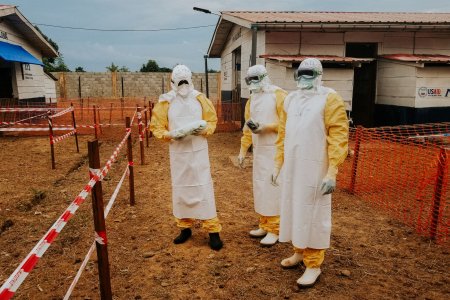 MSF
Analysis
MSF
Analysis
MSF and Ebola in Nord Kivu. Positioning, Politics and Pertinence
11/04/2022This article was published on December 22nd, 2021 in the Journal of Humanitarian Affairs (Issue 3, Volume 3).
In this article, Natalie Roberts analyses the actions and positioning of MSF during the Ebola outbreak in Nord Kivu (Democratic Republic of Congo, 2018-2020).
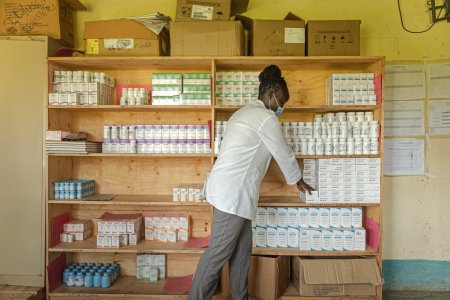 Njiiri Karago/MSF
Analysis
Njiiri Karago/MSF
Analysis
What AIDS teaches us
09/16/2022In this article, Rony Brauman identifies the dynamics and events that made bending the HIV/AIDS epidemic curve possible. He explains the climate in which the tug-of-war with parts of the pharmaceutical industry played out from MSF’s perspective, and recalls that fears about international security and political stability also helped push governments to mobilise against the epidemic.
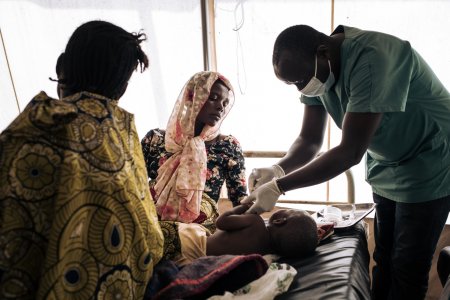 Alexis Huguet/MSF
Analysis
Alexis Huguet/MSF
Analysis
Management of the suffering child: a medical and operational challenge
04/27/2022
Based on the example of the hospital in Moïssala, Chad, the two authors reflect on the management of pain in children at Médecins Sans Frontières. This article was first published on March 25th 2022 in the journal Alternatives Humanitaires.
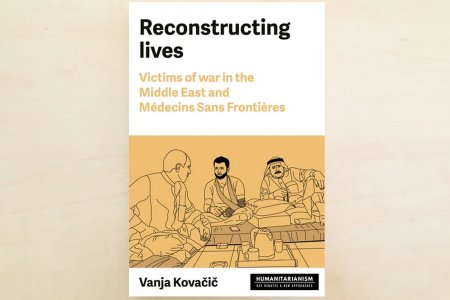 MSF
Book
MSF
Book
Reconstructing Lives: Victims of war in the Middle East and Médecins Sans Frontières
04/01/2022Reconstructing Lives: Victims of war in the Middle East and Médecins Sans Frontières was published in January 2022 by Manchester University Press. The book is the result of extensive fieldwork, in collaboration with the Crash. It is fully available on our website.
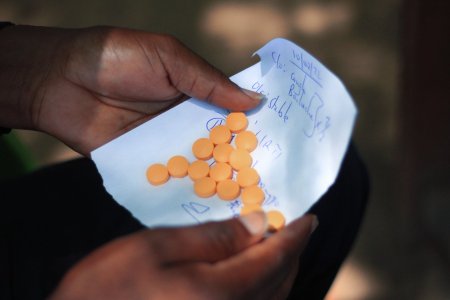 Video
Video
Doing Drugs – Video briefing on access to medicines
02/03/2022On 3rd and 4th February 2022, the CRASH organised a workshop aimed at the leaders, operational managers and members of MSF France, to shed light on the current debates on access to medicines, and to determine together which issues are the most relevant to resolve. In preparation for this workshop, the CRASH asked experts external to MSF to explain their vision of today’s pharmaceutical industry system, with subjects that ranged from pre-development to distribution, and included patents and quality-related issues.
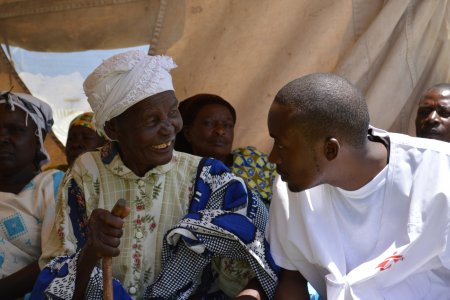 Jean-Christophe Nougaret/MSF
Analysis
Jean-Christophe Nougaret/MSF
Analysis
About the possibility of controlling an HIV epidemic hotspot
11/14/2021This article was first released in the 18th volume of the Humanitarian Alternatives magazine. Designed to reduce the incidence of HIV/AIDS in a Kenyan district, a Médecins Sans Frontières project successfully exceeded the “90-90-90” target set by UNAIDS. A look back on the results that the authors of this article - Pierre Mendiharat, Deputy director of operations at MSF France and Léon Salumu Luzinga, Program manager at MSF France, interviewed by Elba Rahmouni - believe are encouraging but by no means a guarantee that the epidemic will be over by 2030.
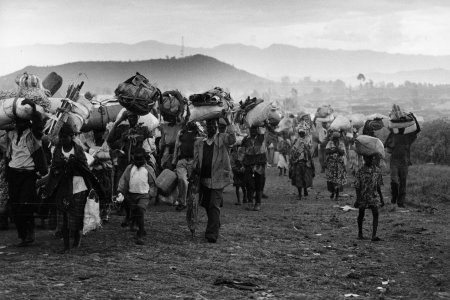 Remco Bohle
Opinion
Remco Bohle
Opinion
Patrick de Saint-Exupéry: a counterfaiter in Congo
10/27/2021In his book, La Traversée. Une odyssée au cœur de l’Afrique, Patrick de Saint-Exupéry challenges the reality of Hutu Rwandan refugees’ hunt and massacre facing the advancement of the Rwandan Patriotic Army and their Congolese allies in 1996-97. This systematic exercise of denying reality – especially the denial of the Mapping Report written by the Office of the United Nations High Commissioner for Human Rights (1143 pages, published in June 2009) – but also this denial of Human Rights Advocacy groups’ investigations, and those of journalists’ witnesses present in DRC at the time – does not spare MSF’s teams who came to help these refugees in 1996-97. However, as a front-line witness of the Tutsi genocide in Rwanda, MSF was also one of the organizations noticing the intense violence perpetrated by the new Rwandan political regime in Zaire / DRC back in 1996 and 1997, mostly against a population constituted at three-quarters of women and children.
 Book
Book
Extreme violence. Investigating, Saving, Judging Democratic Republic of Congo, Rwanda, Syria
09/23/2021Over the last few years, Rwanda, the Democratic Republic of Congo (DRC) and Syria have been places where situations of extreme violence took place. As witnesses and investigators of such, the authors of this book shed light on three key-moments that marked these tragic episodes: the investigation, the intervention of emergency relief teams and the implementation of justice procedures leading to judgement.
Humanitarian Field Practices in the Context of the Syrian Conflict from 2011 to 2018
03/15/2021This article was first published in Issue 2, Volume 2 of The Journal of Humanitarian Affairs.
How can a medical humanitarian organisation deliver emergency assistance in Syria when there is nowhere in the country where civilians, the wounded and their families, medical personnel and aid workers are not targeted? Not in the areas controlled by the government, nor in those held by the Kurdish Democratic Union Party (PYD), Islamic State of Iraq and the Levant (ISIL) or the different rebel groups. So what action could be taken, and how? Remotely or on site? At the very least, we had to decipher the diverging political and military agendas, and then adapt, persist or sometimes just give up. In this article, I will present the full range of methods used to acquire knowledge and obtain information as well as the various networks used to carry out this venture. I will also show how Médecins Sans Frontières’ operations became a balancing act, punctuated by episodes of adapting to the various difficulties encountered.
